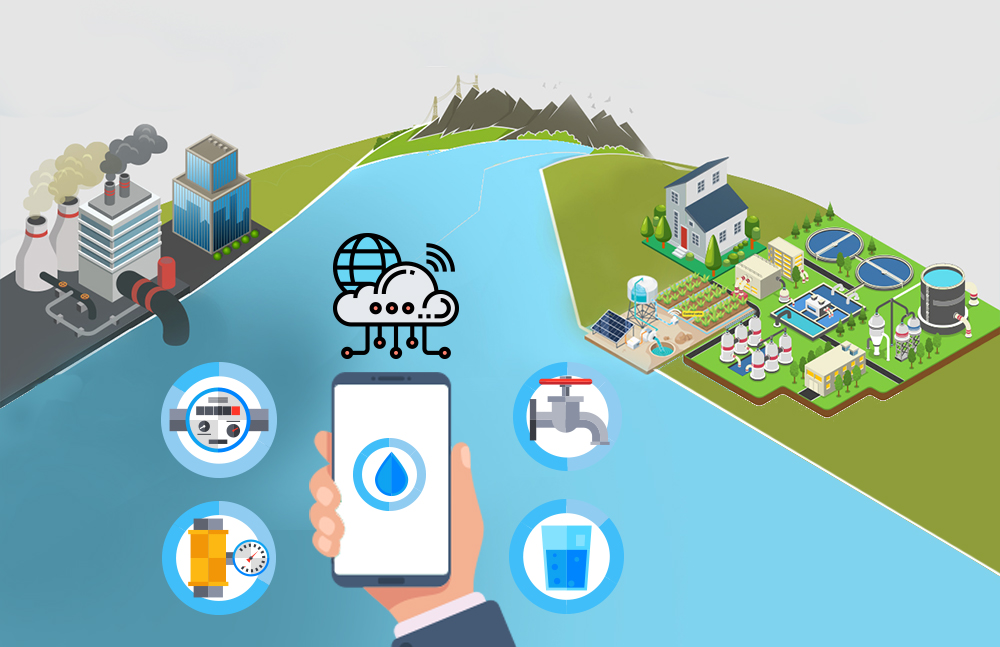Water, an essential element of life, is a finite resource crucial for sustenance, sanitation, and overall well-being. With the global population rising and urbanization accelerating, the strain on water resources has become increasingly apparent, especially in the context of affordable housing. As the world grapples with the challenge of providing adequate housing for all, integrating smart water management practices with society apps initiatives has emerged as a crucial solution. This article delves into the pivotal role of smart water management in ensuring sustainable and affordable housing for communities worldwide.
Understanding the Nexus between Water and Affordable Housing
Access to safe and reliable water supply is a fundamental human right. However, in many regions, especially in developing economies, the provision of affordable housing often comes at the cost of compromised water access and quality. Rapid urbanization exacerbates this issue, leading to increased water demand, strained infrastructure, and inadequate sanitation systems in low-income housing areas.
Challenges Faced in Affordable Housing and Water Management
Smart city solutions in affordable housing projects often encounter challenges related to water scarcity, inefficient water distribution systems, and the lack of proper wastewater management. These challenges not only affect the residents’ quality of life but also contribute to environmental degradation and health hazards.
The Integration of Smart Water Management in Affordable Housing
Smart water management solutions offer a ray of hope in addressing the water-related challenges in affordable housing. These innovative approaches leverage technology and data-driven strategies to optimize water usage, enhance distribution networks, and improve overall water efficiency.
Water-Efficient Technologies for Affordable Housing
Implementing water-efficient technologies like low-flow fixtures, rainwater harvesting systems, greywater recycling, and drip irrigation not only conserves water but also reduces water bills for residents. Additionally, employing smart meters and sensors enables real-time monitoring of water consumption, facilitating prompt leak detection and efficient usage.
Community Engagement and Awareness
Educating residents about water conservation practices and fostering community involvement in water management initiatives play a pivotal role. Awareness campaigns, workshops, and community-driven programs empower individuals to adopt responsible water usage habits, promoting a sustainable environment within affordable housing communities.
Policy and Regulatory Frameworks
Integrating smart water management practices into policies and regulatory frameworks is essential for sustainable and affordable housing. Governments and policymakers need to incentivize the adoption of water-efficient technologies and enforce building codes that prioritize water conservation in affordable housing projects.
Socioeconomic Impact of Smart Water Management in Affordable Housing
The implementation of an apartment management system not only addresses water-related challenges but also has broader socioeconomic benefits. Reduced water bills for residents lead to increased disposable income, improved health due to better sanitation, and a more sustainable environment, fostering a sense of well-being and empowerment within communities.
Challenges and Future Perspectives
Despite the promising potential, challenges such as initial investment costs, technological barriers, and the need for capacity building pose hurdles in implementing smart water management in affordable housing at scale. However, continuous innovation, public-private partnerships, and knowledge sharing can pave the way for overcoming these challenges.
The Role of Innovative Financing in Smart Water Management for Affordable Housing
One of the critical aspects often overlooked in the integration of smart water management in affordable housing is the role of innovative financing mechanisms. Funding plays a pivotal role in implementing technological solutions and infrastructure required for efficient water management.
Governments, international organizations, and private sector entities must collaborate to provide financial support and incentives for developers and residents to adopt smart water technologies. This can be achieved through subsidies, grants, tax credits, or favorable loan schemes specifically tailored for water-efficient upgrades in affordable housing.
Public-private partnerships (PPPs) are an effective means to mobilize resources and expertise for sustainable water management. Governments can collaborate with private entities to develop funding models that share the initial investment burden, making it more feasible for affordable housing projects to incorporate smart water systems.
Technology Advancements and Scalability
Advancements in technology continue to drive innovation in smart water management. The scalability and affordability of these technologies are key factors in ensuring widespread adoption in affordable housing projects. As technology becomes more accessible and cost-effective, it becomes increasingly feasible to integrate smart water solutions into housing initiatives without significantly impacting construction costs.
For instance, IoT (Internet of Things) sensors and cloud-based platforms offer cost-efficient solutions for monitoring water usage and detecting leaks in real time. These advancements, when integrated into affordable housing infrastructure, can significantly reduce maintenance costs and water wastage, thereby contributing to long-term affordability.
Capacity Building and Knowledge Transfer
Investing in capacity building and knowledge transfer is crucial for the successful implementation of smart water management in affordable housing. Training programs, workshops, and educational campaigns aimed at developers, residents, and local authorities can enhance understanding and encourage the adoption of water-efficient practices.
Additionally, knowledge-sharing platforms, forums, and partnerships between academia, industry experts, and policymakers facilitate the exchange of best practices and lessons learned. This collaboration fosters continuous improvement and innovation in water management strategies for affordable housing.
Environmental Impact and Resilience
The integration of smart water management practices in affordable housing contributes significantly to environmental sustainability and resilience. By reducing water consumption, these initiatives alleviate the strain on natural resources and lower the carbon footprint associated with water treatment and distribution.
Moreover, in the face of climate change and increasing water scarcity, resilient water management systems in affordable housing ensure continuity of supply, minimizing disruptions and enhancing the overall resilience of communities.
Conclusion
Smart water management is an indispensable component in ensuring sustainable and affordable housing for communities globally. By harnessing technological advancements, fostering community engagement, and integrating efficient policies, we can create housing solutions that not only meet the needs of residents but also contribute to water conservation, environmental sustainability, and overall well-being. Embracing these strategies is imperative in shaping a future where everyone has access to affordable housing without compromising on essential resources like water.

 How Can Dubai Event Managers and Stand Contractors Improve Exhibitions?
How Can Dubai Event Managers and Stand Contractors Improve Exhibitions?  Digital Marketing Services: Strategies for Small Businesses on a Budget
Digital Marketing Services: Strategies for Small Businesses on a Budget  Navigating The Path To Excellence: Finding The Best Ivf Center In Rajasthan
Navigating The Path To Excellence: Finding The Best Ivf Center In Rajasthan  What are the very basic steps to be taken into account for boosting JavaScript security?
What are the very basic steps to be taken into account for boosting JavaScript security?  Is it Better to Opt for a Natural Solution or Install a Water Softener for Tackling Hard Water at Home?
Is it Better to Opt for a Natural Solution or Install a Water Softener for Tackling Hard Water at Home?  Weaverham’s Exclusive Collection of Engagement Rings
Weaverham’s Exclusive Collection of Engagement Rings 